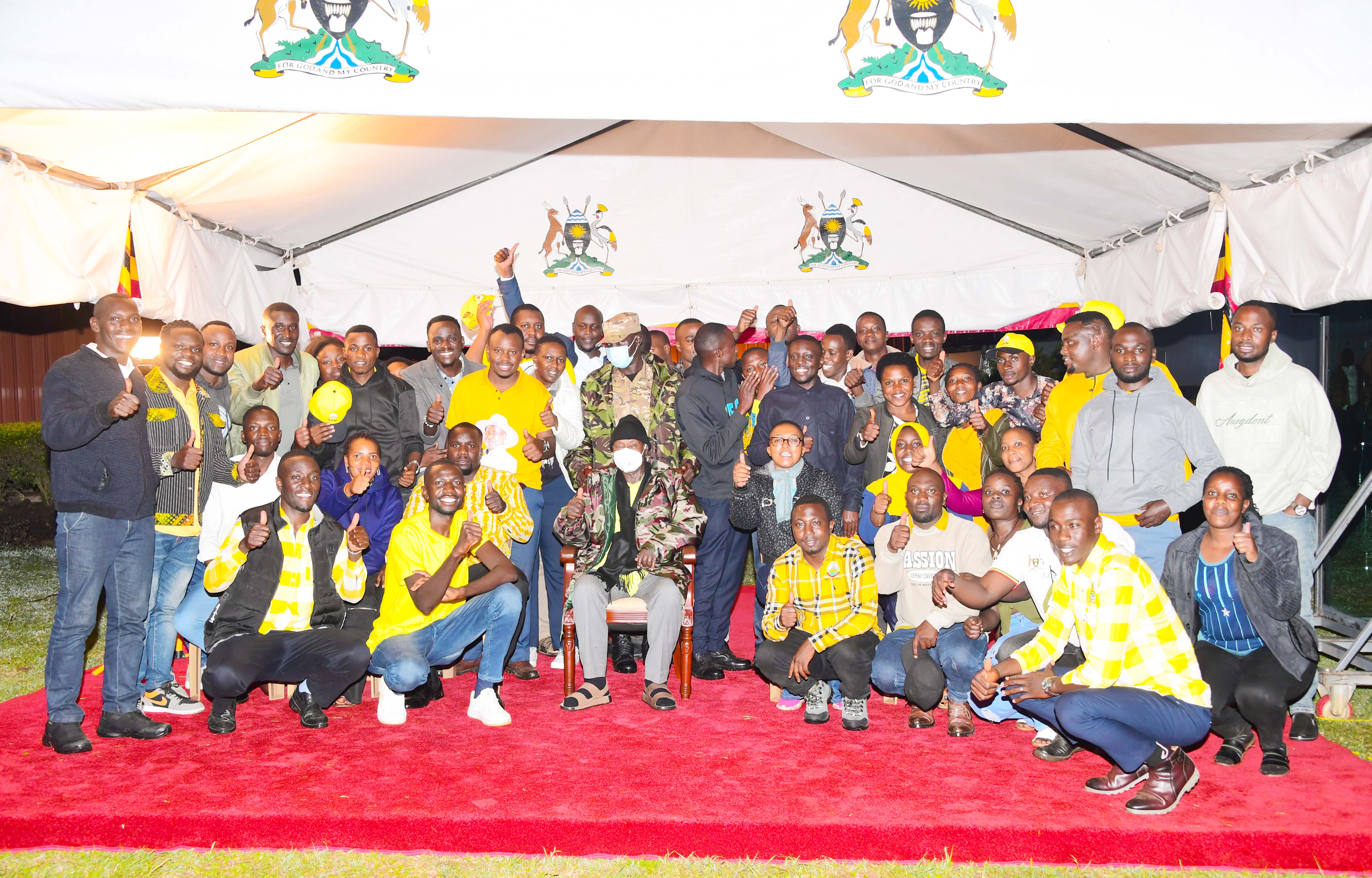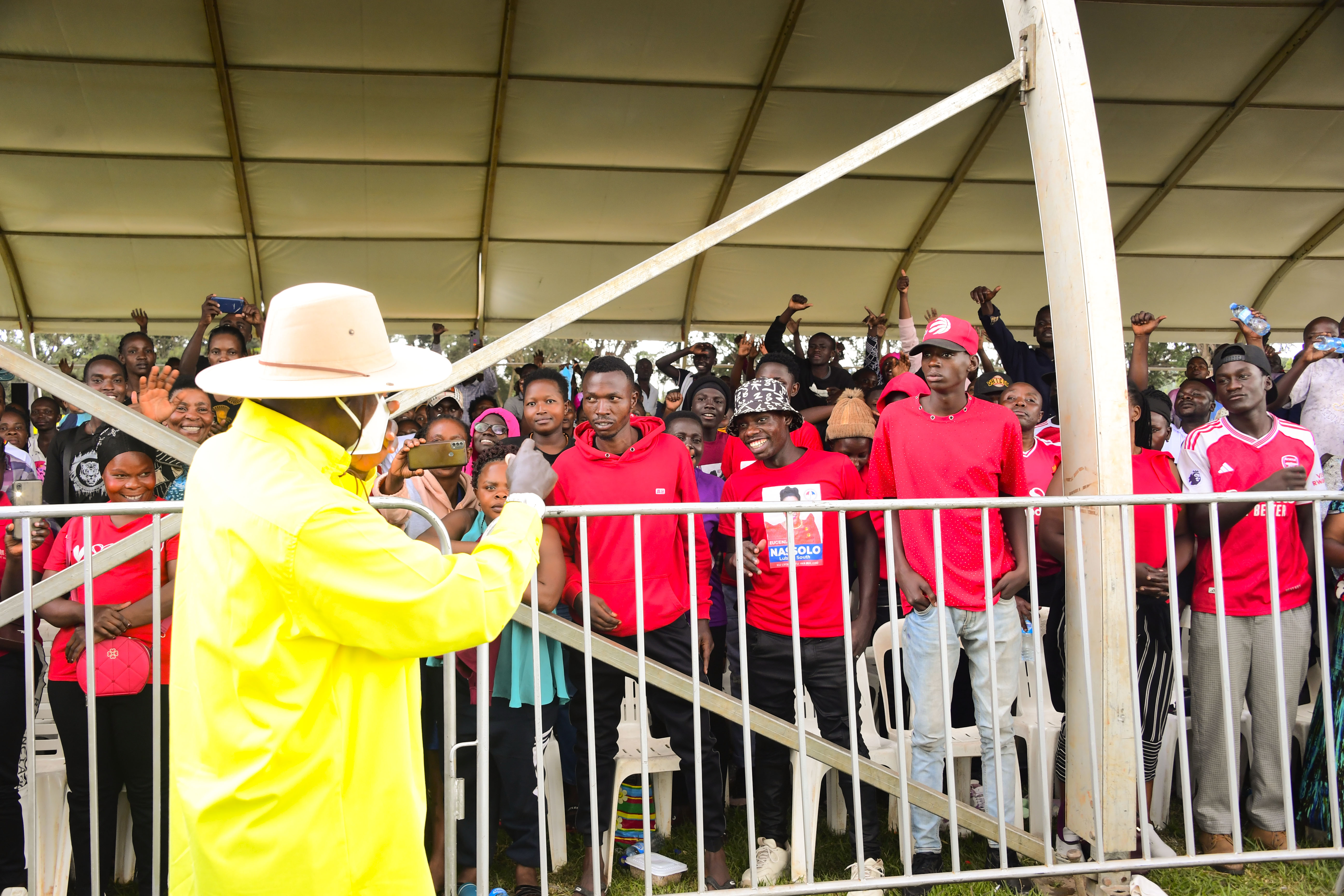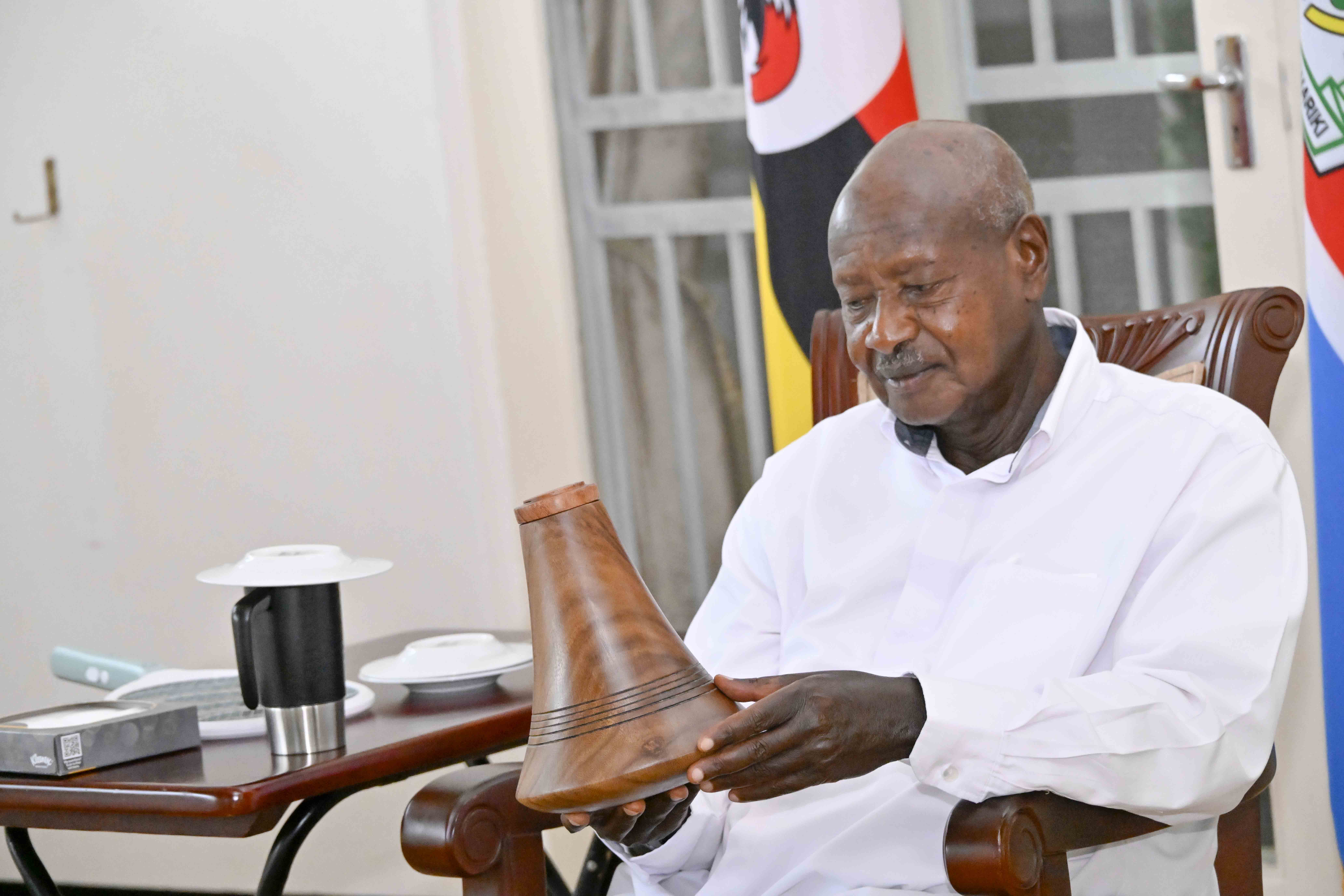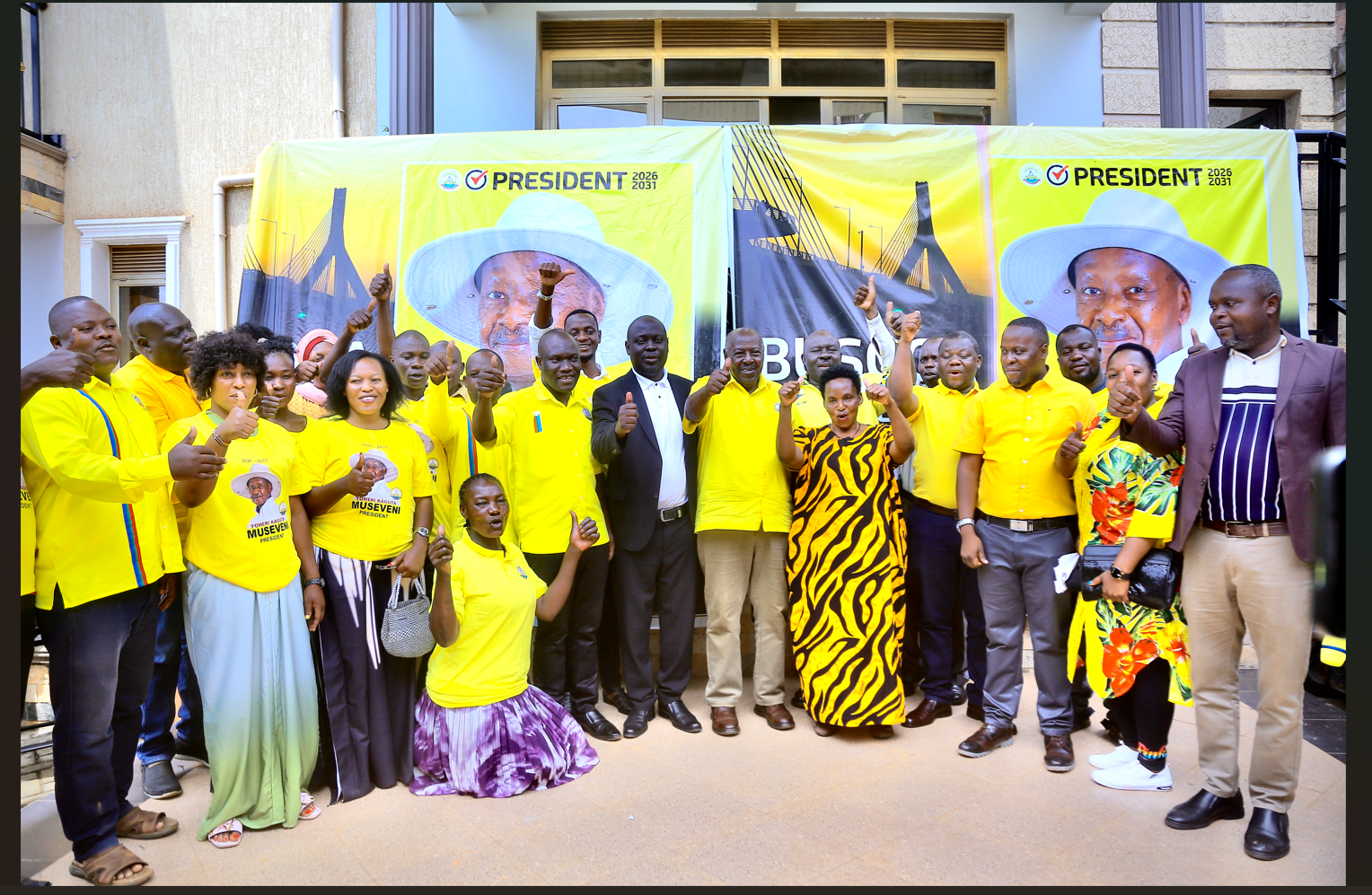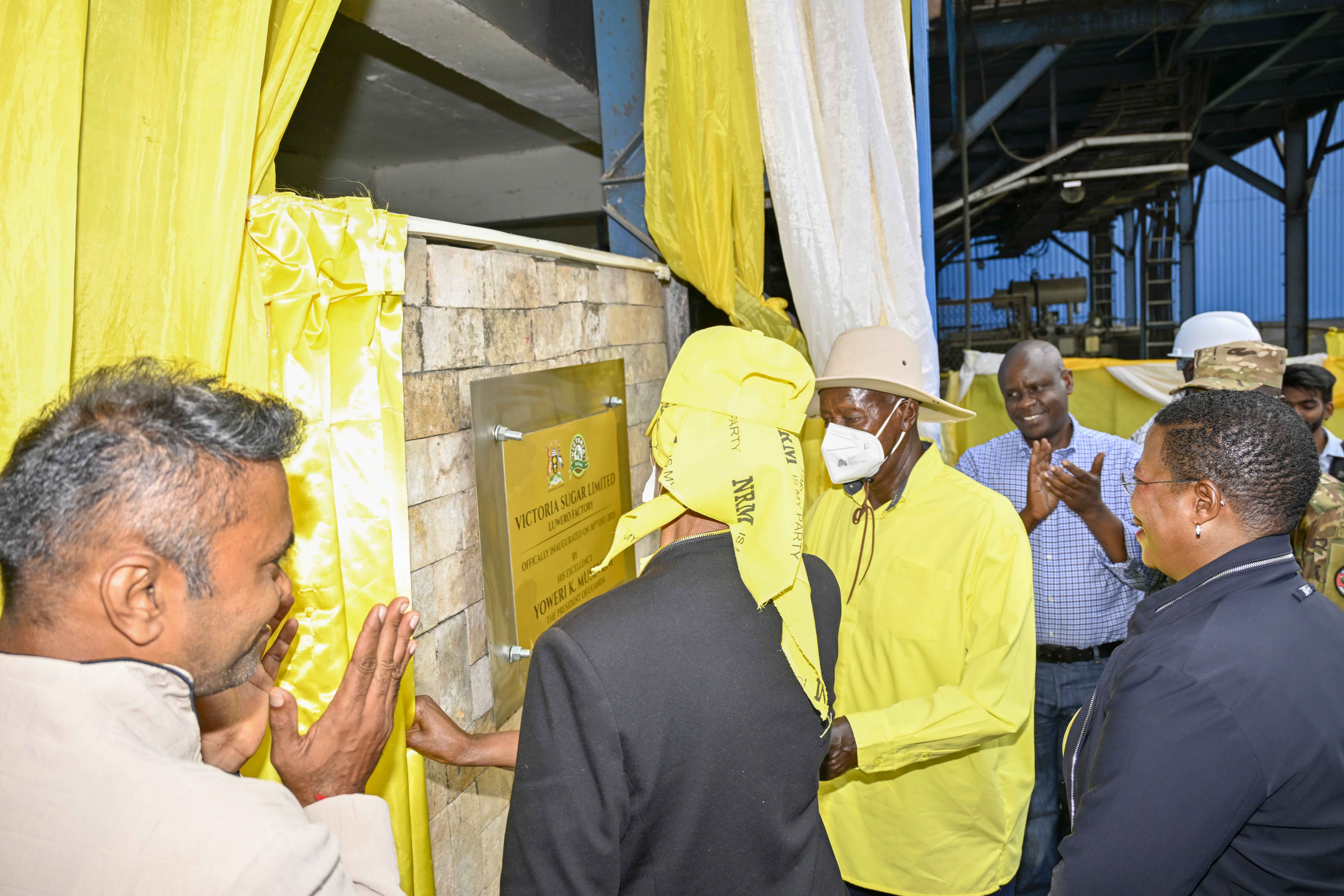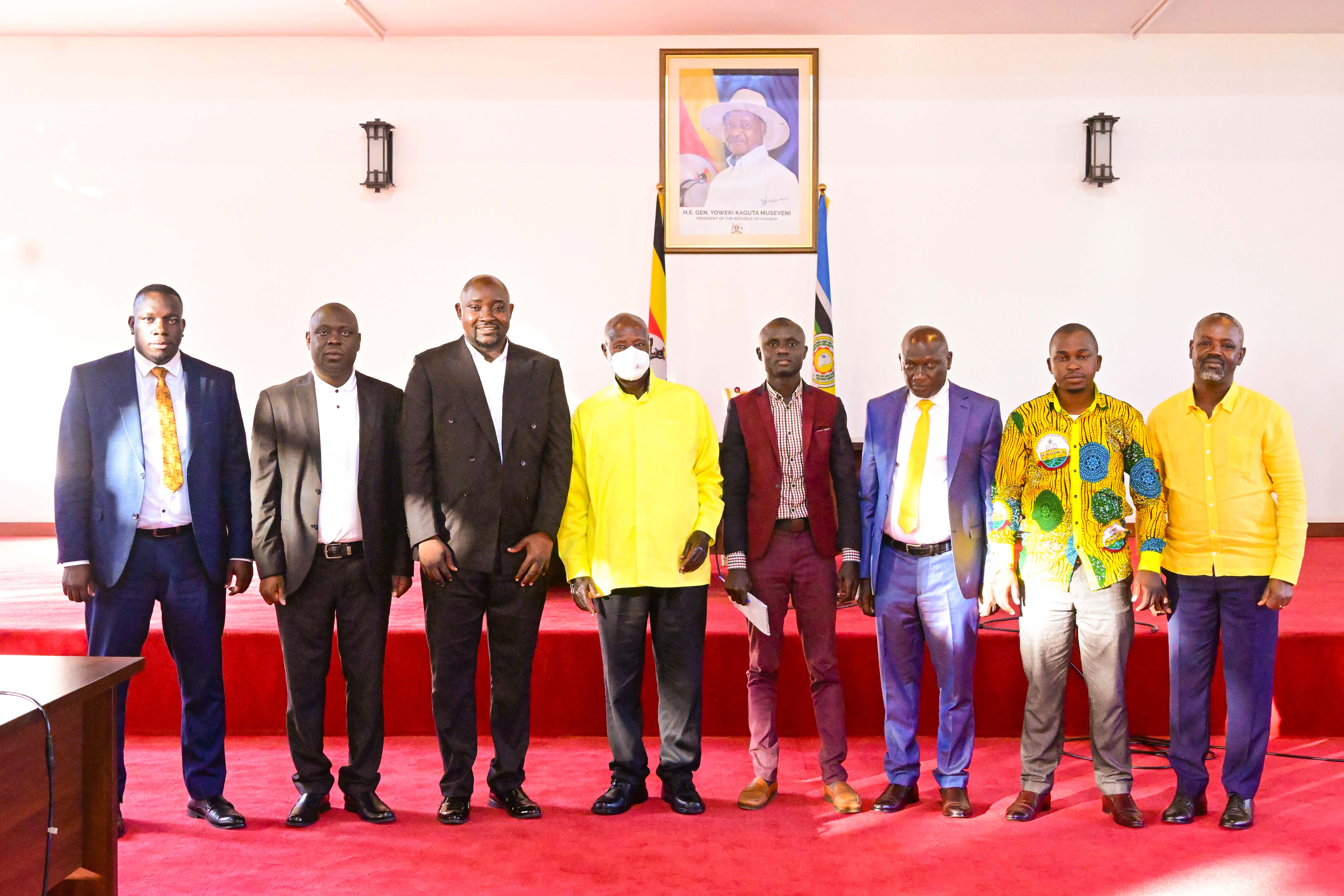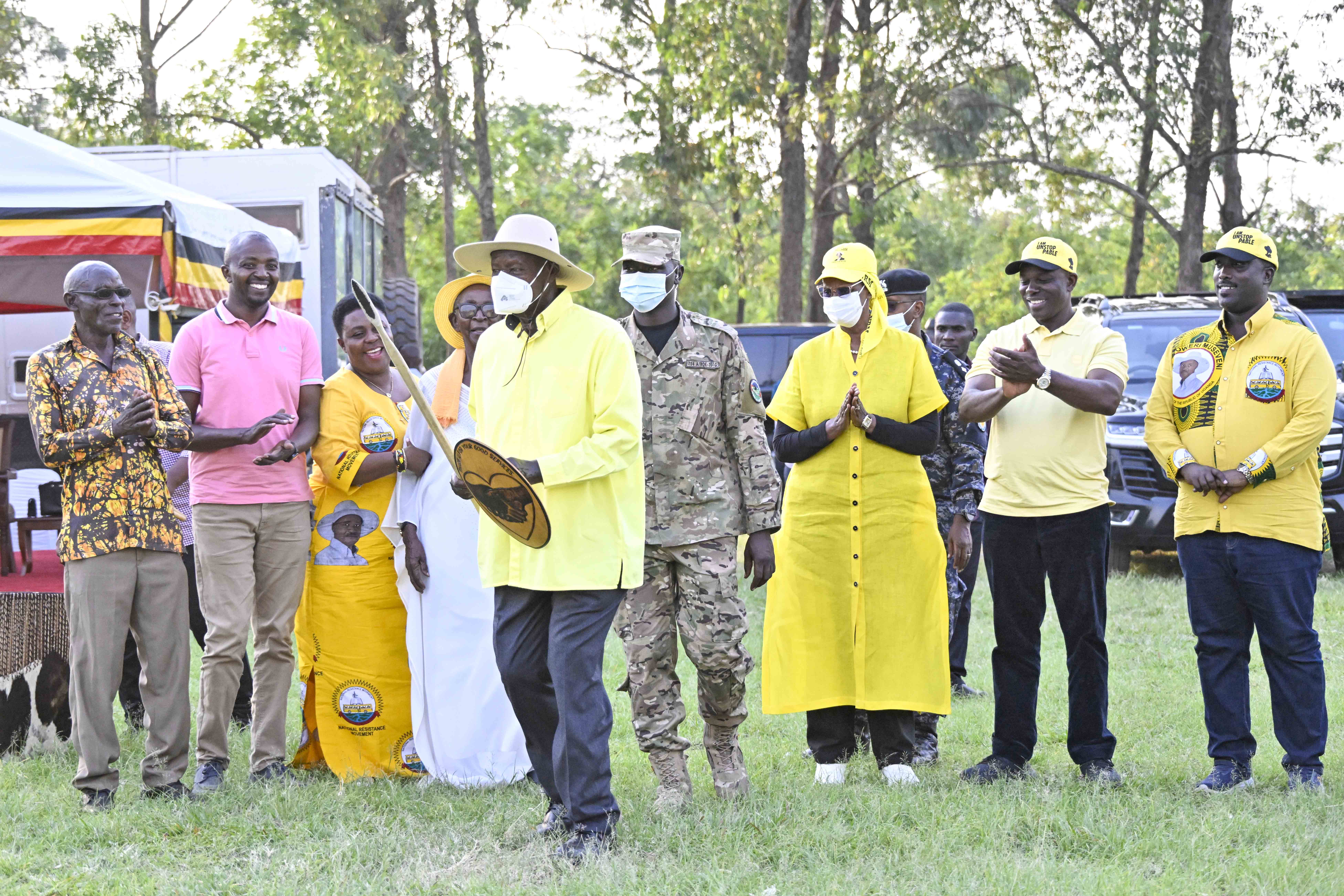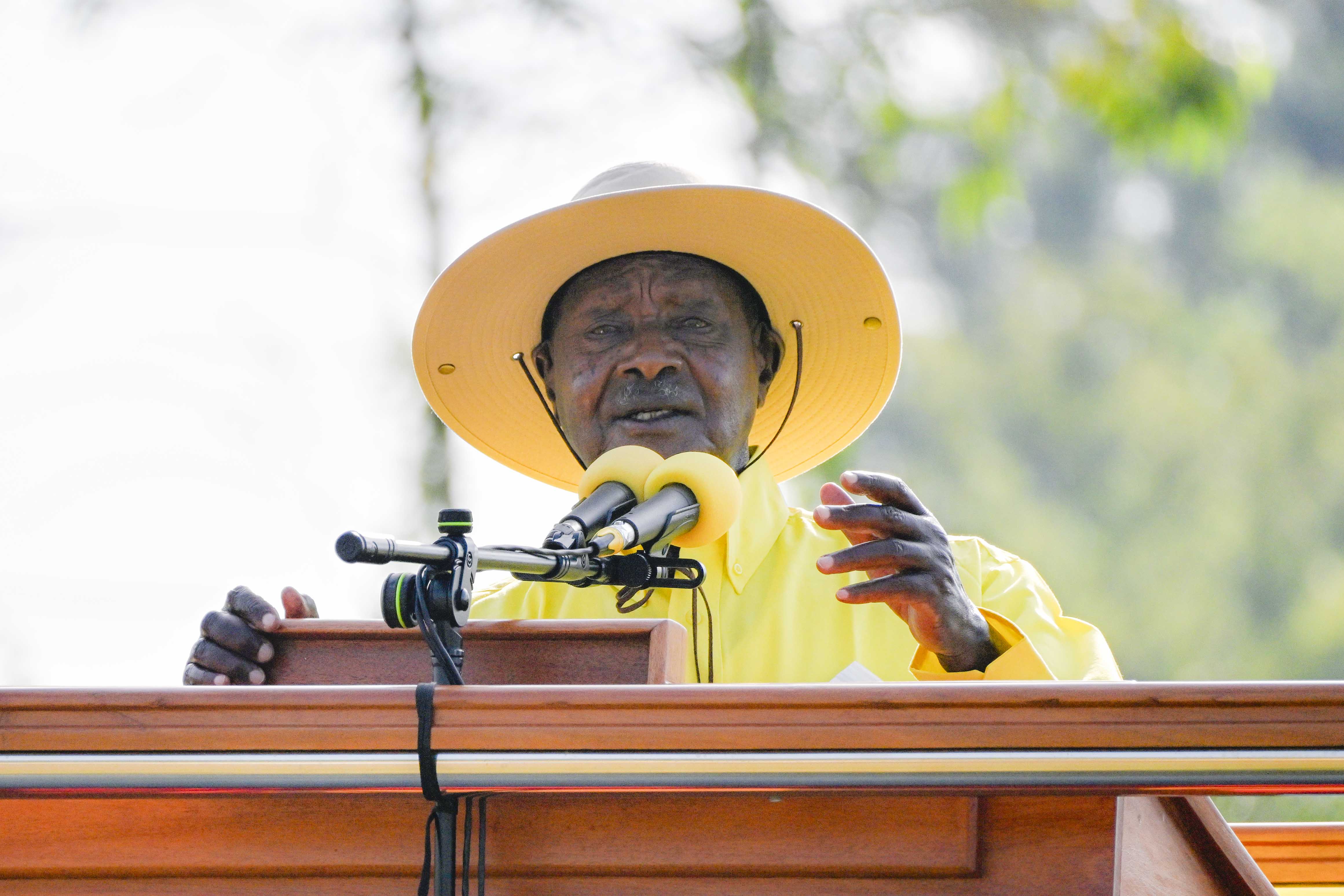
PRESIDENT MUSEVENI RALLIES UGANDANS TO VOTE WISELY
President Yoweri Kaguta Museveni, also the National Resistance Movement (NRM) Presidential flag bearer for 2026 general elections, has rallied Ugandans to vote wisely. He made the remarks yesterday while addressing a multitude of NRM supporters during a campaign rally at St. James Secondary School playground in Kyotera district. President Museveni who was accompanied by other NRM leaders to present the NRM manifesto to the electorate said, “ When I ask you to support NRM, it's because it doesn’t make empty promises.” He mentioned that the NRM's manifesto contains seven key contributions of the party to Uganda, for instance peace that didn’t come by itself but through the party’s ideology that supports politics of interest rather than politics of identity based on tribe, religion or gender chauvinism. “Uganda has been peaceful for the last 40 years,” he said. The second contribution is development through economic and social infrastructure. He gave an example of Masaka, Bukakata, Sembambule tarmac roads that were constructed by the NRM and promised to tarmac/upgrade other roads listed in the NRM manifesto such as Kyotera, Mutukula, Kyapa and Kasensero. The President said wealth creation is the third contribution. He gave details, “In 1962 after Independence only 4% of the households were working for money and the 96% households were working for the stomach only (subsistence farming) till when the NRM came into power.” He revealed that the NRM government introduced development programs like Operation Wealth Creation, which was managed by the army, the Bonna Bagaggawale, Entandikwa, National Agricultural Advisory Services (NAADS), Emyooga and the Parish Development Model (PDM). “In 1996 we educated you about the four-acre model. Plant coffee in one acre of land, plant food crops in the second acre, do zero grazing on the third acre, in the backyard do poultry for eggs, piggery for the non-Muslims and fish farming for those near the wetlands.” He listed job creation as the fourth contribution of the NRM and advised Ugandans not to think that most jobs are in the government. He revealed that the government employs only 480,000 people and urged them to focus on the private sector. He mentioned Mr. Johnson Basangwa of Kamuli, describing him as one of the successful farmers who have made a fortune in commercial agriculture. “Basangwa and his four colleagues wanted to become the LCV chairman of Kamuli. This was impossible for all of them to become one. I therefore advised them to focus on fighting poverty through agriculture,” he said. “Mr. Basangwa listened to my call. He started rearing layers. He now sells 200 trays of eggs and earns Shs 20 million per day, Shs 60m per month and Shs 7.2bn per year. He currently employs 300 workers.” The President also talked about the 75 Industries in Sino- Mbale Industrial Park, which employ 12,000 workers and the 273 factories in Namanve Industrial Park that employ 44,000 workers. He therefore promised to construct an industrial park in Lukoma field. On the other hand, President Museveni pledged to increase the number of the Presidential Industrial Skilling Hubs from 19 to 38 to benefit more youths. Finally, the President handed over flags to all NRM flag bearers in Kyotera District. Rt.Hon. Annet Anita Among, the Speaker of Parliament and the NRM 2nd National Vice Chairperson (Female) thanked Kyotera residents for loving and supporting President Museveni and the NRM. She emphasized that it’s the President working on the Kyotera- Mutukula road not the opposition as it's being alleged. She added that the opposition has no such capacity. Rt. Hon. Among also advised the people of Kyotera to vote for NRM leaders who will offer them good services. Hon. Haruna Kyeyune Kasolo, the NRM Vice Chairperson for Central Buganda welcomed the President in Kyotera and commended him for giving him a chance to serve Ugandans. He told the President that all NRM leaders in her area are united and that the NRM youths have done a tremendous job in campaigning for the party. The NRM chairman for Kyotera district, Mr. Kalemba Christopher applauded President Museveni for improving the education and health sectors in the district and fighting poverty through wealth creation programs like PDM and Emyooga, among other developments.

